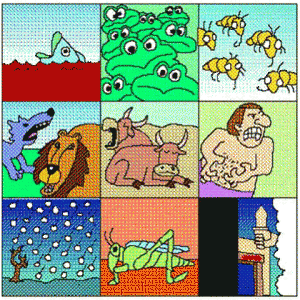"וּשְׁמַרְתֶּם, אֶת-הַמַּצּוֹת"
What does that mean? How could a mitzvah become chametz?
It is explained that we should constantly be running to do mitzvot and not wait on them. If an opportunity for a mitzvah presents itself, we should jump at it. We should not say that we will do it later - in 10 mins or 30 mins - because it might not be there then and we will miss the chance.
If we have the chance to help our parents, we should do right away. Your mom asks you to take out the garbage - do it right away, not once the show you're watching is over. If you could give help to your friend - do it right away. If you have just finished eating - say birkat hamazon right away! If not, you might forget to and miss the mitzvah.
Doing these mitzvot right away will help us get more mitzvot done and will not allow opportunities to slip through our fingers. If we take action - our mitzvot will not become chametz. Let's take lesson from Nike - Just Do It!
